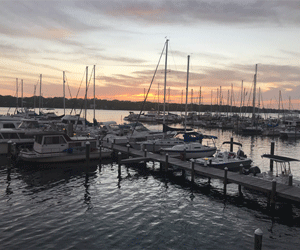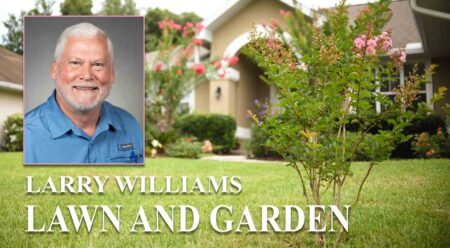FLORIDA –– With cooler temperatures, shorter days, and winter and Christmas on their way, you may not be putting much thought into your landscape. But there are jobs that can be performed during the month of December to improve your landscape and garden.
Hardy shrubs and trees can be planted this month. Water them carefully. Don’t let them dry out, but don’t keep the soil overly wet, either.
Allow shrubs and trees to slow down and enter dormancy by withholding fertilizers. Tender shrubs and trees damaged by a killing frost or freeze should not be cut back yet. Wait until the new growth of spring to see how far down the damage goes, then prune.
Avoid severe pruning now, as this can result in young tender growth that will be sensitive to freezes. Severe pruning, if needed, should be done in late winter to early spring.
Remove spent camellia blooms as they fall to help prevent petal blight, an unsightly disease that causes brown spots on camellia petals and causes the blooms to fall prematurely. Refer to this publication on camellia pests: https://edis.ifas.ufl.edu/publication/EP558.
Establish bedding plants of snapdragons, dianthus, pansies, and petunias. Fertilize winter blooming annuals every four to six weeks with a slow-release fertilizer.
Plant hardy perennials like delphinium, rudbeckia, and Shasta daisy. There is no need to fertilize hardy perennials in December.
Finish dividing and transplanting clumping perennials such as daylilies, mondo grass, ajuga, and liriope.
Clean the garden, pull up spent annuals, and renew the mulch.
Plant bare-root roses now. Select those that have been grafted on Fortuniana rootstock for the best results. When cold weather is forecast, protect the graft from frost or freeze with mulch. Refer to this publication on roses: https://edis.ifas.ufl.edu/ep339.
Finish planting spring-blooming bulbs such as narcissus. Plant pre-cooled tulips and hyacinths before December 15. Finish planting wildflower seeds this month.
Plant bare-root and container-grown fruit trees or blueberries all month.
Plant herbs that do well in winter, including parsley, sage, rosemary, thyme, and lavender.
Remove dead vegetation and weeds to prevent a buildup of diseases, weeds, and insects.
Continue planting cool-season vegetables such as cabbage, broccoli, Brussels sprouts, radish, carrots, cauliflower, kohlrabi, mustard, onions, and turnips. Refer to these publications on herbs and vegetable gardening: https://edis.ifas.ufl.edu/publication/VH020, https://edis.ifas.ufl.edu/publication/VH021.
Keep cool-season weeds in check before they get too established. Henbit, chickweed, and dandelion weeds will grow all winter.
Larry Williams is the Extension Horticulture Agent with the Okaloosa County Cooperative Extension Service, University of Florida. Contact Larry at 689-5850 or email lwilliams@myokaloosa.com.







